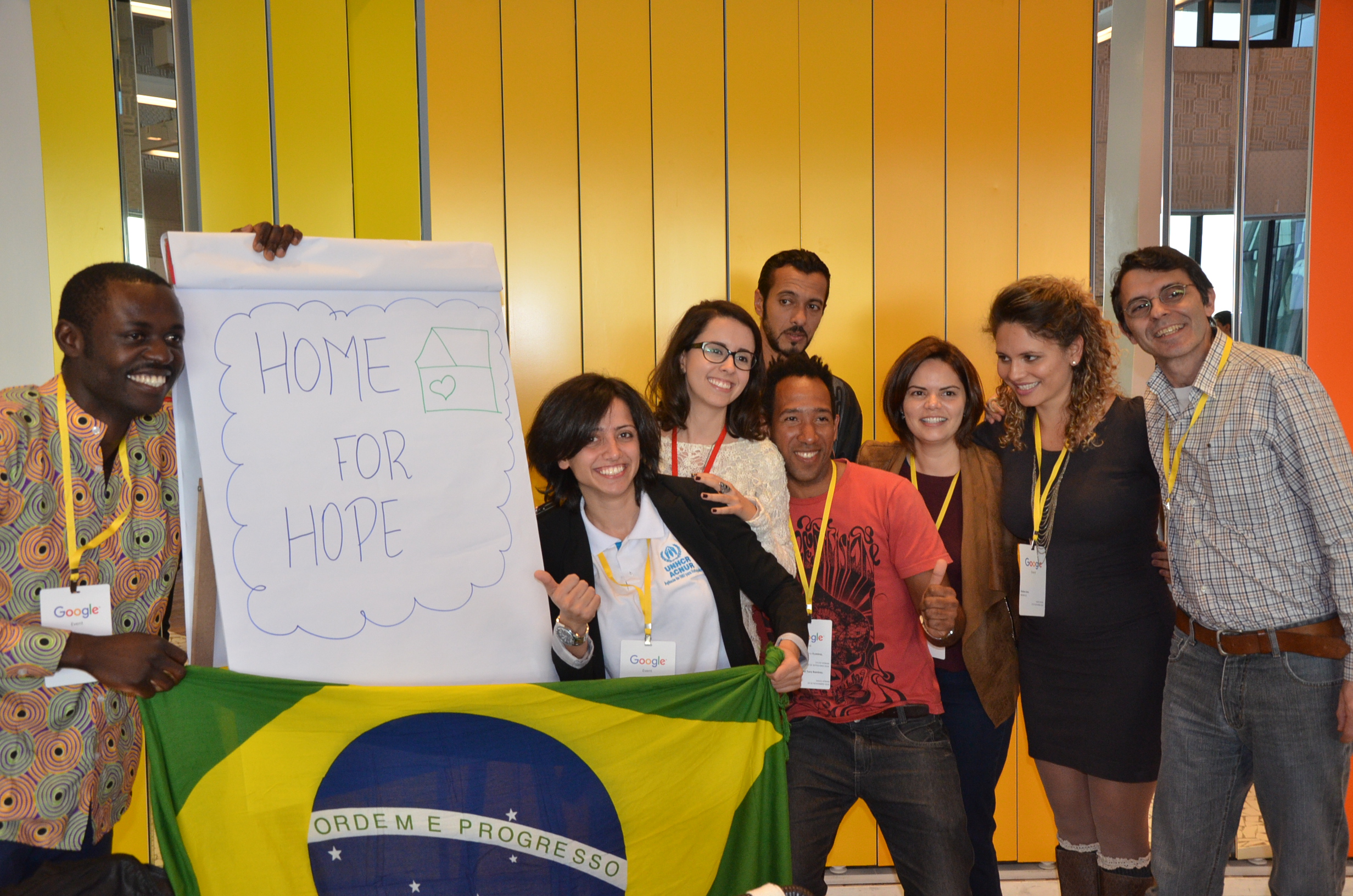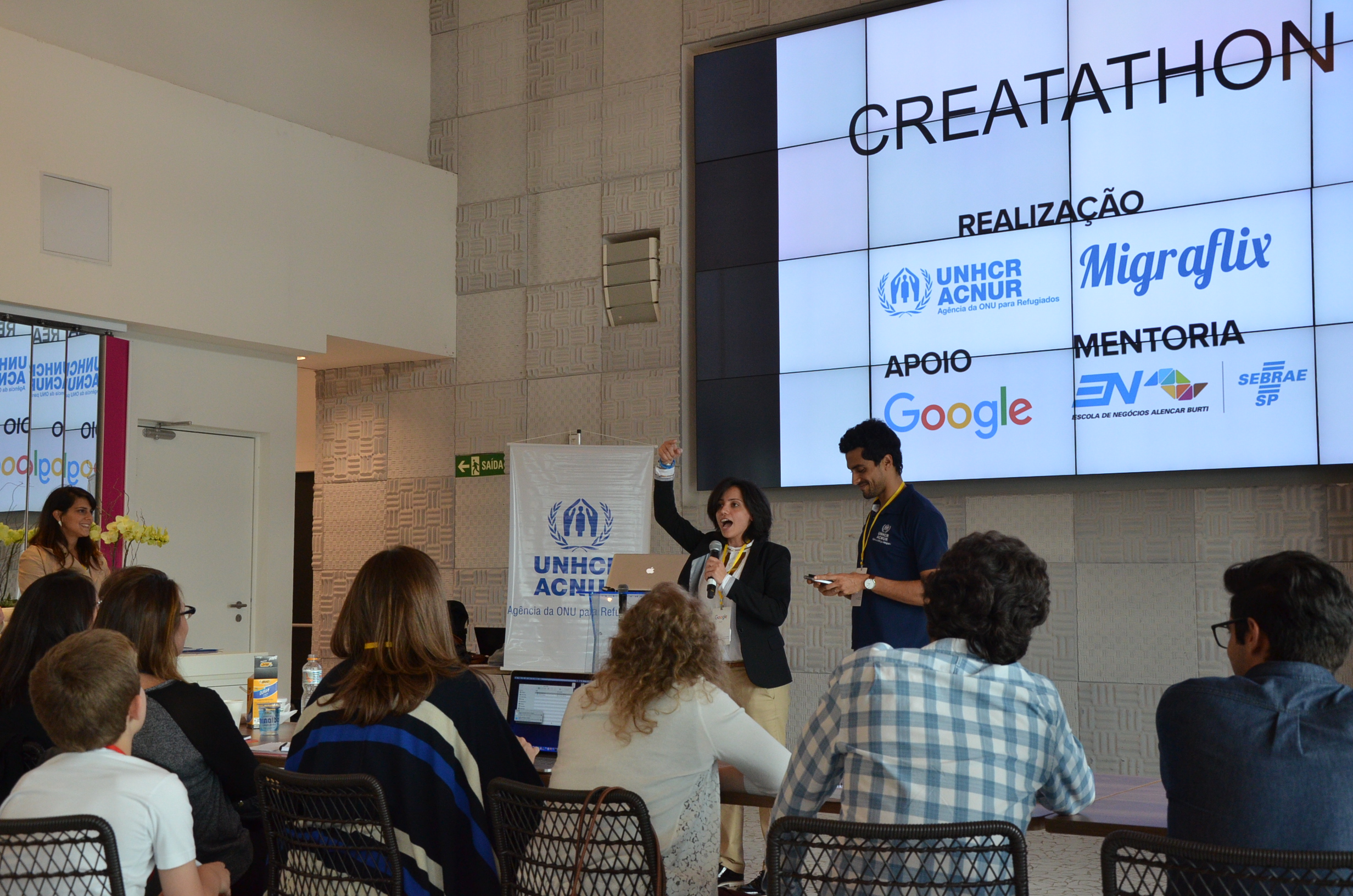SAO PAULO, Brazil – When Maha Mamo received her visa to Brazil, she was thrilled. Born stateless, she had spent the better part of a decade appealing to countless consulates to take her and her siblings in.
Maha is neither a citizen of Lebanon, where she was born, nor of Syria, her parents’ homeland. In both countries, citizenship is passed on through the father. Maha and her siblings – an older sister and a younger brother – could not gain Lebanese citizenship because their father is not Lebanese, and their father could not pass down his Syrian citizenship because Syria does not recognize his marriage, as a Christian, to their mother, a Muslim. With no official status in Lebanon, Mamo and her siblings could not legally work, travel, “or even get a SIM card,” Mamo says.
Then in 2014, the Brazilian Embassy issued them laissez-passer travel documents, stamped with humanitarian visas. It would be their ticket to freedom.
But Mamo’s excitement quickly turned to concern: She and her siblings were to leave Lebanon within days of getting their exit visas and they knew no one in Brazil. “The first thing I thought about was, ‘Where am I going to sleep?’”
Mamo, now 29, turned to Facebook. A friend of hers had recently visited Brazil, and Mamo saw that she had stayed with a family in the city of Belo Horizonte. The friend introduced them. Though the family spoke little English and the Mamos spoke no Portuguese at the time, “They told us ‘You’re more than welcome,’” Mamo remembers. “They opened their house to us and were like a family for us. What helped us to enter into this country and understand Brazil was this family.”
Mamo realized that the situation she and her siblings found themselves in – arriving in a new country with little money and no contacts – was hardly unique. Brazil has issued over 8,000 humanitarian visas to Syrians since 2013, enabling refugees to reach the country to claim asylum.
The country’s refugee population has more than doubled since 2010. Around 9,000 people from 80 countries have been recognized as refugees in Brazil, according to government statistics. Syrians make up the largest group, at around 2,300 refugees, followed by Angolans, Colombians and Congolese.
“Before [anything], the first worry that people have is, ‘Where am I going to sleep?’” she said. “If you have shelter, you can work, eat, prepare your papers easily.”
Mamo’s experience was the inspiration for Home for Hope, an app she helped design that will connect migrants and refugees with volunteer host families in Brazil, to help new arrivals settle into their new homes. The app was the winning project at a hackathon organized last November at Google’s Sao Paulo campus in which migrants and locals presented tech projects that would serve Brazil’s growing refugee population.

Maha, center, and her team won a hackathon at Google’s Sao Paulo campus in November 2016 with the Home for Hope app. (UNHCR/M. Pachioni)
The event was the culmination of Creatathon, a four-month program organized by Migraflix, a local nongovernmental organization, and the United Nations High Commissioner for Refugees (UNHCR) for 40 Brazilians, migrants and refugees from countries including Cuba, the Democratic Republic of Congo, Lebanon and Syria. They attended workshops in design thinking, pitching and storytelling, before forming six teams that competed for the opportunity to see their business proposals become reality.
“[The program] was an opportunity for Brazilians to listen to refugees, learn who they are, how they’re integrating in Brazil, what their challenges are and how they can work together to [fix those challenges],” said Isabela Mazao, head of UNHCR’s Sao Paulo office.
In addition to Home for Hope, three other Creatathon projects were chosen for a mentorship program with Google, which has paired the teams with more established startups, and Sebrae, a local nonprofit that provides support to small- and medium-sized businesses. Those projects are Xseed, an app connecting refugee job seekers with potential employers; Share and Care, a skill-share app linking migrants with locals; and 1contact, which helps non-Portuguese migrants meet up with people who speak their native tongue.
“These are four projects that solve the biggest challenges refugees face in Brazil –housing, employment and integration – and they have huge potential not only in Brazil but in other countries,” said Jonathan Berezovsky, who founded Migraflix in 2015. Berezovsky said he expects the projects to launch later this year.

Maha speaks at Creatathon, a four-month program organized by Migraflix and UNHCR last year. (UNHCR/M. Pachioni)
Brazil has earned praise in recent years for its relative openness to refugees – giving asylum seekers the right to work, access to education and public healthcare.
Yet challenges await the new arrivals: Brazil is in the midst of its worst recession in memory and unemployment has risen sharply in recent years.
Mazao said businesses in Brazil would do well to hire more refugees. “[Refugees] bring knowledge and experience that could enrich the work environment. They should be seen as assets that have a lot to contribute for the skills and diversity they bring.”
Meanwhile, the government has tightened the reins on social spending, and immigrants and refugees often rely on nongovernmental programs for help finding housing, work and other social services.
Berezovsky, whose NGO organizes migrant-led classes in cooking, dance and music, says the idea for Creatathon came when he realized the needs of Sao Paulo’s refugee community went beyond Migraflix’s scope.
“We realized we could incubate projects that would solve some of the issues we can’t take care of with our own resources,” he said. “And there’s no one better than refugees to say what the biggest problems are, and to come up with the right solutions.”
Never miss an update. Sign up here for our Refugees Deeply newsletter to receive weekly updates, special reports and featured insights on one of the most critical issues of our time.
